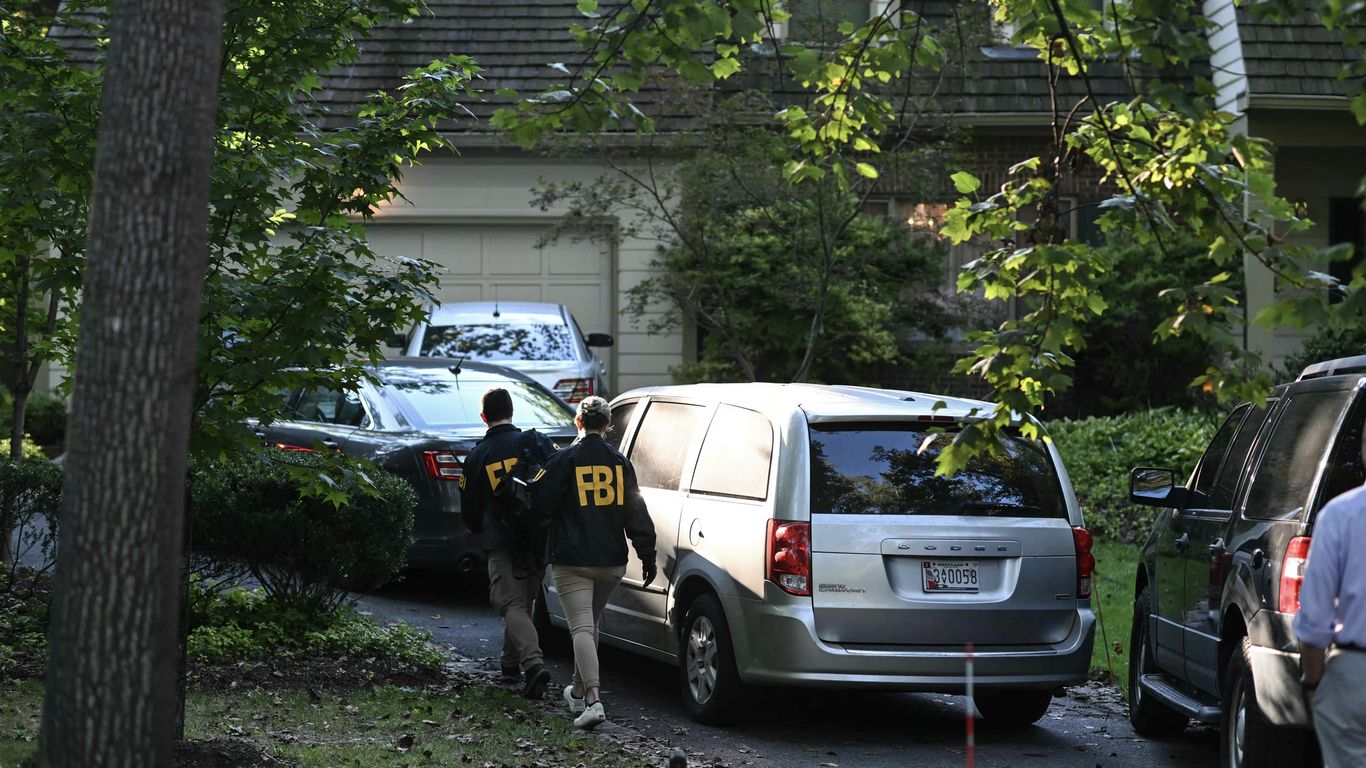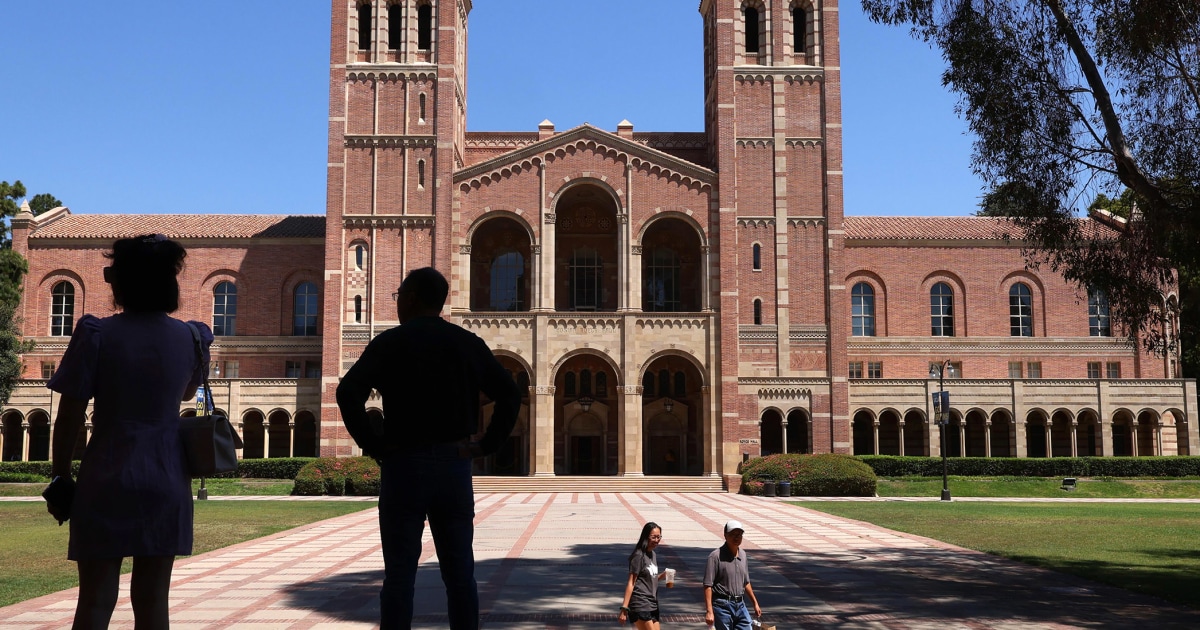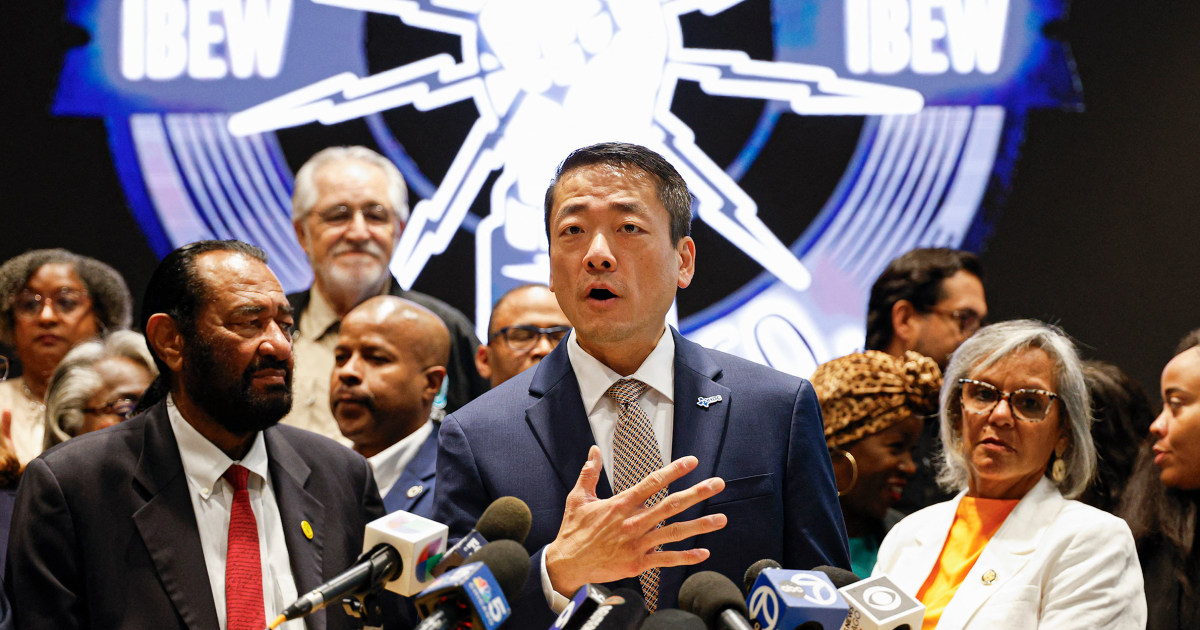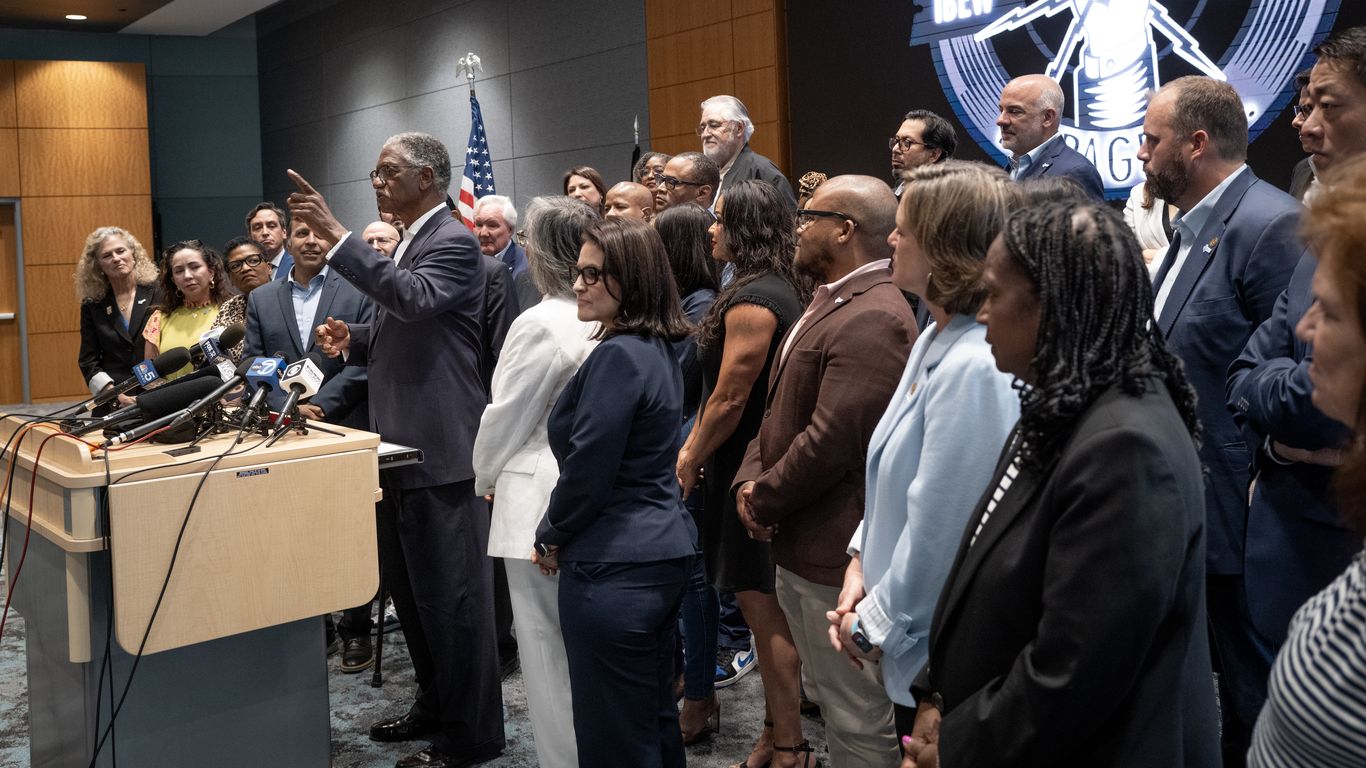FBI Raids John Bolton's Home

FBI Raids John Bolton's Home
Former National Security Adviser John Bolton's home was raided by the FBI on Tuesday, according to reports from Axios. This comes in the midst of an ongoing investigation into Bolton's handling of classified information during his time in the Trump administration.
Stripped Security Protections
In January, President Trump stripped Bolton of his security protections, citing concerns over his handling of classified information. This move was met with criticism from both Democrats and Republicans, with many questioning the motives behind the decision.
The Controversy Surrounding Bolton
Bolton has been a controversial figure in the Trump administration, with his hardline stance on foreign policy often clashing with the President's more isolationist views. His departure from the administration in September 2019 was met with mixed reactions, with some praising his departure while others questioned the timing of the decision.
Implications of the Raid
The FBI raid on Bolton's home has raised questions about the extent of the ongoing investigation and the potential consequences for the former National Security Adviser. As more details emerge, it will be important to closely monitor the impact of this latest development on both Bolton and the Trump administration as a whole.
About the People Mentioned
John Bolton
John Bolton is an American attorney and government official known for his long career in Republican administrations and a consistently hardline approach to U.S. foreign policy. Born on November 20, 1948, in Baltimore, Maryland, he graduated summa cum laude from Yale University (B.A.) and later earned his J.D. from Yale Law School[2]. Bolton began his public service in the early 1980s under President Ronald Reagan, holding positions at the U.S. Agency for International Development and as Assistant Attorney General (1985–1989)[1]. He served as Assistant Secretary of State for International Organization Affairs under President George H.W. Bush (1989–1993)[1][2]. During the George W. Bush administration, Bolton was appointed Under Secretary of State for Arms Control and International Security (2001–2005), where he supported U.S. withdrawal from the Anti-Ballistic Missile Treaty and opposed the International Criminal Court[1]. His nomination as U.S. Ambassador to the United Nations was controversial; facing bipartisan Senate opposition, he was installed via a recess appointment in August 2005, serving until December 2006[1][3]. At the UN, Bolton was known for his blunt, confrontational style, famously remarking that the Secretariat building “has 38 stories. If it lost 10 stories today, it wouldn’t make a bit of difference”[3]. His tenure was marked by tensions with UN officials and allies, and he achieved few major diplomatic breakthroughs[3]. Bolton returned to private life as a commentator, notably for Fox News, where he advocated aggressive stances on Iran and North Korea[3]. In April 2018, President Donald Trump appointed him National Security Advisor, a role he held until September 2019[1][5]. During this period, Bolton was a vocal advocate for a tough line on Iran, Venezuela, and North Korea, but his tenure ended abruptly amid reported policy disagreements with the president[1]. Since leaving government, Bolton has remained a prominent conservative voice, authoring books and frequently commenting on foreign policy. His memoirs, including “The Room Where It Happened,” have been notable for their critical insider accounts of the Trump administration. Bolton continues to influence foreign policy debates through media appearances and writings, maintaining relevance as a staunch advocate for assertive American global leadership[6].
About the Organizations Mentioned
FBI
The Federal Bureau of Investigation (FBI) is a premier law enforcement agency in the United States, renowned for its role in protecting the nation from domestic and international threats. Founded on July 26, 1908, as the Bureau of Investigation, it was initially tasked with addressing land fraud and corporate malfeasance under President Theodore Roosevelt[1][2]. Over time, its mandate expanded significantly, particularly with the passage of the Mann Act in 1910, which allowed federal jurisdiction over certain moral offenses[1][4]. ### History and Evolution The FBI underwent significant transformation under J. Edgar Hoover, who became its director in 1924. Hoover implemented strict hiring standards and enhanced operational capabilities, transforming the agency into a robust investigative force[1][4]. The FBI's name was officially changed to the Federal Bureau of Investigation in 1935[5][6]. Throughout its history, the FBI has faced challenges, including concerns about potential abuses of power, but it has consistently demonstrated its value in national security and law enforcement[3][4]. ### Key Achievements The FBI has been instrumental in combating various crimes, including white-collar offenses, civil rights violations, and national security threats. Notable achievements include its role in enforcing the Espionage Act during World War I and its investigations into organized crime throughout the 20th century[2][4]. ### Current Status Today, the FBI is a sophisticated agency with over 37,100 employees, including special agents and professionals in various fields such as intelligence analysis and cybersecurity[5]. It operates in 55 field offices across the U.S. and has an international presence in 81 nations[5]. The FBI continues to evolve, addressing emerging threats like cybercrime and terrorism while maintaining its commitment to justice and integrity. ### Notable Aspects The FBI is known for its rigorous training programs at the FBI Academy in Quantico, Virginia, and its advanced forensic capabilities at the FBI Laboratory. Its work in business and technology includes
Trump Administration
The **Trump Administration** refers to the executive branch of the United States government under President Donald J. Trump, covering two non-consecutive periods: his first term from 2017 to 2021 and his second term beginning in 2025. As an organization, it is responsible for executing federal laws, shaping public policy, and managing national affairs during its tenure. During the **first Trump Administration (2017–2021)**, the administration pursued a wide-ranging agenda focused on immigration reform, economic nationalism, deregulation, judiciary appointments, and foreign policy shifts. Key actions included building and expanding the U.S.-Mexico border wall—completing 458 miles by January 2021—and implementing strict immigration policies such as travel bans from several predominantly Muslim countries and rescinding the DAPA amnesty program[2]. The administration withdrew the U.S. from the Trans-Pacific Partnership trade deal, renegotiated NAFTA into the USMCA, and signed the "Buy American and Hire American" executive order to prioritize American workers[1][3][5]. Judicially, Trump appointed three Supreme Court justices—Neil Gorsuch, Brett Kavanaugh, and Amy Coney Barrett—significantly influencing the federal judiciary with over 200 judicial appointments[5]. The administration also focused on military expansion, combating ISIS, addressing the opioid crisis, and responding to the COVID-19 pandemic with vaccine development support[5]. Foreign policy was marked by controversial decisions including troop withdrawals from northern Syria, reinforced support for Saudi Arabia, and tensions with Iran and North Korea[4]. The administration faced two impeachments: first in 2019 over Ukraine dealings and again in 2021 following the January Capitol riot; Trump was acquitted by the Senate both times[4][5]. After losing the 2020 election, Trump returned for a **second term starting in 2025**, continuing his policy priorities with new regulatory changes and political appointments[6][8]. The Trump Administration


















